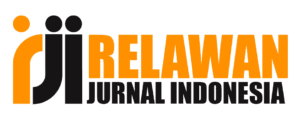The Performance Achievement of Bureaucratic Reform in Bima Regency: A Perspective of Public Administration
Abstract
This research aims to analyze the achievements of bureaucratic reform in Bima Regency, Indonesia, with a focus on the aspects of transparency in public administration, the application of merit system in employee management, optimization of public services, and the implementation of bureaucracy simplification policies based on information technology. In this context, the research highlights the importance of these aspects in enhancing accountability, efficiency, and quality of public services. The research methodology used is qualitative descriptive, collecting data through interviews, literature reviews, and data analysis from primary and secondary sources. The results of the research indicate that the implementation of bureaucratic reform in Bima Regency has progressed, especially in terms of transparency in public administration, the application of merit system, and the adoption of information technology. The Unqualified Opinion from the Supreme Audit Agency (BPK) on the Regional Government Financial Report signifies success in maintaining transparency, while the adoption of E-Government applications has improved efficiency and transparency in various government sectors. However, there are still challenges such as deviations in employee selection procedures and complaints regarding the quality of public services, indicating the need for additional steps to ensure the overall success of bureaucratic reform. Despite obstacles in implementation, these positive trends reflect successful efforts in adopting information technology as a tool to enhance administrative efficiency and the quality of public services, reflecting the commitment of local governments to improve governance that is more efficient, transparent, and responsive to the needs of the community.
References
Abdul Manaf, H., Salam Man, M. N., Mutiarin, D., & Al-Hamdi, R. (2022). An analysis on critical determination factors of E-Participation for digital society: The case of Malaysian local government. International Conference on Public Organization (ICONPO 2021), 209(Iconpo 2021), 350–364. https://www.atlantis-press.com/proceedings/iconpo-21/125970941
Adi Bhaskara, J., & Nurmandi, A. (2022). Role of Artificial Intelligence in the Smart City: A Bibliometric Review. In Communications in Computer and Information Science: Vol. 1655 CCIS (Issue December). Springer Nature Switzerland. https://doi.org/10.1007/978-3-031-19682-9_74
Al Taweel, I. R., & Al-Hawary, S. I. (2021). The mediating role of innovation capability on the relationship between strategic agility and organizational performance. Sustainability (Switzerland), 13(14), 1–14. https://doi.org/10.3390/su13147564
Amri, P., Nurmandi, A., & Mutiarin, D. (2022). the Role of Policy Actors in Determining the Direction of Disruptive Innovation Policy. Journal of Governance and Regulation, 11(4 Special Issue), 374–386. https://doi.org/10.22495/jgrv11i4siart18
Astuti, E. S., Sanawiri, B., & Iqbal, M. (2020). Attributes of innovation, digital technology and their impact on sme performance in indonesia. International Journal of Entrepreneurship, 24(1). https://doi.org/10.6084/m9.figshare.12228692
Badan Pusat Statistik Republik Indonesia. (2023). Laporan Kinerja Instansi Pemerintah Badan Pusat Statistik 2022. 1–135.
Congge, U., Guillamón, M. D., Nurmandi, A., Salahudin, & Sihidi, I. T. (2023). Digital democracy: A systematic literature review. Frontiers in Political Science, 5. https://doi.org/10.3389/fpos.2023.972802
Firdaus, Nur, M., Haeril, & Hidayatullah, A. (2024). Transformasi Organisasi: Membangun Budaya Inovasi untuk Kesuksesan Reformasi Birokrasi di Kabupaten Bima Firdaus. JSIM: Jurnal Ilmu Sosial Dan Pendidikan, 4(6), 844–853.
Hakim, A. N. (2017). Assessment of community satisfaction index of population and civil registration office in Malang municipal. IOP Conference Series: Earth and Environmental Science, 70(1). https://doi.org/10.1088/1755-1315/70/1/012030
Hakim, A., Saputra, O. A., & Saleh, C. (2021). Policy determination in E-budgeting implementation by the government of DKI Jakarta - Indonesia. International Journal of Criminology and Sociology, 10, 149–167. https://doi.org/10.6000/1929-4409.2021.10.19
Harun, H., Supriyono, B., Haryono, B. S., & Setyowati, E. (2020). Initiating digitalization as institutional changes in institutional government bureaucracy. Proceedings of the International Conference on Industrial Engineering and Operations Management, 0(March), 2519–2523.
Hendrik, M., Supriyono, B., Muluk, M. R. K., & Mardiyono, M. (2018). Assessing the influence of leadership on the implementation of good governance in a new autonomous region. Public Administration Issues, 2018(6), 5–23. https://doi.org/10.17323/1999-5431-2018-0-6-5-23
Irwansyah, Hidayati, T., & Hudayah, S. (2022). the Effect of E-Government on Local Government Performance Accountability in Indonesia. International Journal of EBusiness and EGovernment Studies, 14(2), 126–147. https://doi.org/10.34109/ijebeg.202214150
Kementerian PANRB. (2023). Peraturan Menteri Pendayagunaan Aparatur Negara dan Reformasi Birokrasi Republik Indonesia Nomor 3 Tahun 2023 Tentang Perubahan Atas Peraturan Menteri Pendayagunaan Aparatur Negara dan Reformasi Birokrasi Nomor 25 Tahun 2020 Tentang Road Map Reformasi Bir. Jakarta, 1–77.
Kumalasari, R. A. D., Rahardjo, K., Kusumawati, A., & Sunarti, S. (2024). Biometric-based self-service technology adoption by older adult: empirical evidence from pension fund sector in Indonesia. Cogent Business and Management, 11(1). https://doi.org/10.1080/23311975.2024.2325543
Lawelai, H., & Nurmandi, A. (2024). Analyzing Smart Cities Governance Publications Using CiteSpace: Integration of Organizational Strategy and Human Resources for Sustainable Urban Development. In Communications in Computer and Information Science: Vol. 1957 CCIS (Issue January). Springer Nature Switzerland. https://doi.org/10.1007/978-3-031-49212-9_6
Lewis, J. M., McGann, M., & Blomkamp, E. (2020). When design meets power: Design thinking, public sector innovation and the politics of policymaking. Policy and Politics, 48(1), 111–130. https://doi.org/10.1332/030557319X15579230420081
Monteiro, P., & Adler, P. S. (2022). Bureaucracy for the 21St Century: Clarifying and Expanding Our View of Bureaucratic Organization. Academy of Management Annals, 16(2), 427–475. https://doi.org/10.5465/annals.2019.0059
Muliawaty, L., Alamsyah, K., Salamah, U., & Maylawati, D. S. (2019). The concept of big data in bureaucratic service using sentiment analysis. International Journal of Sociotechnology and Knowledge Development, 11(3), 1–13. https://doi.org/10.4018/IJSKD.2019070101
Mutiarin, D., Moner, Y. P., Nuryakin, & Nurmandi, A. (2019). The adoption of information and communication technologies in human resource management in the era of public governance. Public Policy and Administration, 18(2), 346–362. https://doi.org/10.13165/VPA-19-18-2-12
Mutiarin, D., Nurmandi, A., Jovita, H., Fajar, M., & Lien, Y. N. (2019). How do government regulations and policies respond to the growing online-enabled transportation service (OETS) in Indonesia, the Philippines, and Taiwan? Digital Policy, Regulation and Governance , 21(4), 419–437. https://doi.org/10.1108/DPRG-01-2019-0001
Noordiatmoko, D., Saleh, C., Khairul Muluk, M. R., & Amin, F. (2022). Building Sustainable Performance Management in Provincial Government in Indonesia Through Governmental Institution Performance Accountability System (Sakip). Res Militaris, 12(2), 3342–3353.
Nugraha, T. F., Wibowo, W. S., Genia, V., Fadhil, A., & Ruldeviyani, Y. (2024). A Practical Approach to Enhance Data Quality Management in Government: Case Study of Indonesian Customs and Excise Office. Journal of Information Systems Engineering and Business Intelligence, 10(1), 51–69. https://doi.org/10.20473/jisebi.10.1.51-69
Nur, M., & Ardiansyah, N. (2024). Menggali Potensi Road-Map Reformasi Birokrasi di Kabupaten Bima Pasca-PermenPAN-RB Nomor 3 Tahun 2023. 5(2).
Nurmandi, A., Kurniawan, D., Misran, & Salahudin. (2021). A Meta-analysis of Big Data Security: How the Government Formulates a Model of Public Information and Security Assurance into Big Data. In Communications in Computer and Information Science: Vol. 1499 CCIS (Issue February 2022). Springer International Publishing. https://doi.org/10.1007/978-3-030-90179-0_60
Ombudsman. (2022). Laporan Survei Kepuasan Masyarakat 2022. 1–2.
Ombudsman. (2023). Perluas pengawasan pelayanan publik.
Ongaro, E., Gong, T., & Jing, Y. (2021). Public administration, context and innovation: A framework of analysis. Public Administration and Development, 41(1), 4–11. https://doi.org/10.1002/pad.1902
Pesch, R., Endres, H., & Bouncken, R. B. (2021). Digital product innovation management: Balancing stability and fluidity through formalization. Journal of Product Innovation Management, 38(6), 726–744. https://doi.org/10.1111/jpim.12609
Pradana, I. P. Y. B., Susanto, E., & Kumorotomo, W. (2022). Bibliometric Analysis of Public Sector Innovation. Jurnal Ilmu Sosial Dan Ilmu Politik, 25(3), 297–315. https://doi.org/10.22146/jsp.69862
Priyono, H., Warsono, H., & Astuti, R. S. (2022). Implementation Of Bureaucracy Simple Policy In Improving The Bureaucracy Reform Index The Government Of The City Of Salatiga. International Journal of Educational Research & Social Sciences, 3(4), 1513–1526. https://ijersc.org
Rahayu, S., Laraswati, D., Pratama, A. A., Sahide, M. A. K., Permadi, D. B., Wibowo, W., Widyaningsih, T. S., Suprapto, E., Andayani, W., & Maryudi, A. (2020). Bureaucratizing non-government organizations as governmental forest extension services in social forestry policy in Indonesia. Forests Trees and Livelihoods, 29(2), 119–129. https://doi.org/10.1080/14728028.2020.1753585
Ramadhani, Suswanta, & Shaddiq, S. (2021). E-Marketing of village tourism development strategy (Case study in the tourist village puncak sosok). Journal of Robotics and Control (JRC), 2(2), 72–77. https://doi.org/10.18196/jrc.2255
Riyadi, S., Andriyani, A. D., Masyhur, A. M., Damarjati, C., Mutiarin, D., Jusman, Y., & Uyun, S. (2023). Improving Administrative Efficiency Using Image Processing Technology Through Fingerprint Attendance System. E3S Web of Conferences, 425, 1–11. https://doi.org/10.1051/e3sconf/202342504005
Roengtam, S., Agustiyara, A., & Nurmandi, A. (2023). Making Network Governance Work in Forest Land-Use Policy in the Local Government. SAGE Open, 13(3), 1–17. https://doi.org/10.1177/21582440231194491
Rojikinnor, R., Gani, A. J. A., Saleh, C., & Amin, F. (2020). Entrepreneurship Determines Public Empowerment through Good Governance and Public Service Quality. Journal of Asian Finance, Economics and Business, 7(11), 491–497. https://doi.org/10.13106/jafeb.2020.vol7.no11.491
Rusniyati, B. (2021). Evaluasi Program Pelatihan Dasar Calon Pegawai Negeri Sipil di Provinsi Nusa Tenggara Barat. Jurnal Widyaiswara Indonesia, 2(1), 21–30. https://doi.org/10.56259/jwi.v2i1.64
Salahudin, Nurmandi, A., Qodir, Z., Jubba, H., & Mutiarin, D. (2020). Elite capture of budget corruption in three Indonesian regions. Public Policy and Administration, 19(2), 340–353. https://doi.org/10.13165/VPA-20-19-2-14
Saleh, C. (2019). Citizen satisfaction with online passport service innovation in Indonesia within an electronic governance perspective. International Journal of Management, 10(6), 61–75. https://doi.org/10.34218/IJM.10.6.2019.007
Saleh, C., & Umiyati, S. (2020). Quality of public services in healthcare sector: A study of BPJS inpatient poly facility in regional public hospital Surabaya. International Journal of Innovation, Creativity and Change, 13(4), 979–988.
Saputra, D. H., Muhlis, L. P., Ilmy, M., Suparno, A., Nasuhi, M., & Mufidah, M. (2021). Implementation of Good Governance and Clean Governance Towards an Effective and Dignity Bureaucracy. PINISI Discretion Review, 4(2), 327. https://doi.org/10.26858/pdr.v4i2.21491
Setiyaningsih, Y., Pramusinto, A., Kusumasari, B., & Purbokusumo, Y. (2023). Changes in the forming aspects of the public service bargains components in determining the general budget policy. AIP Conference Proceedings, 2544(AICoBPA 2020), 457–461. https://doi.org/10.1063/5.0117366
Setyowati, E., & Hakim, A. (2022). The Perception of Administrative Staff on the Abolition of Echelon III and IV for Beaureucratic Reform in the Higher Education. Pakistan Journal of Life and Social Sciences, 20(2), 187–201. https://doi.org/10.57239/PJLSS-2022-20.2.003
Stkip, P., & Cimahi, P. (2015). The Political Process of Bureaucratic Reform ( Study on Bandung City Government in 2015 ). 31573–31581.
Sukoco, B. M., Supriharyanti, E., Sabar, Susanto, E., Nasution, R. A., & Daryanto, A. (2022). Organisational change capacity and performance: the moderating effect of coercive pressure. Asia-Pacific Journal of Business Administration, 14(1), 27–49. https://doi.org/10.1108/APJBA-11-2020-0428
Sulistyaningsih, T., Nurmandi, A., Kamil, M., Roziqin, A., Salahudin, Jainuri, Sihidi, I. T., Apriyanto Romadhan, A., & Loilatu, M. J. (2021). Formulating Sustainable Watershed Governance Model: A Meta-analysis of Watershed Governance. Academic Journal of Interdisciplinary Studies, 10(2), 90–104. https://doi.org/10.36941/ajis-2021-0041
Sulistyaningsih, T., Nurmandi, A., Salahudin, S., Roziqin, A., Kamil, M., Sihidi, I. T., Romadhan, A. A., & Loilatu, M. J. (2021). Public policy analysis on watershed governance in Indonesia. Sustainability (Switzerland), 13(12), 1–21. https://doi.org/10.3390/su13126615
Sunarto, & Sulistyaningsih, T. (2018). Integrated sustainable waste management in Malang City, East Java, Indonesia. AIP Conference Proceedings, 1977. https://doi.org/10.1063/1.5042963
Supramaniam, S., & Singaravelloo, K. (2021). Impact of emotional intelligence on organisational performance: an analysis in the Malaysian public administration. Administrative Sciences, 11(3). https://doi.org/10.3390/ADMSCI11030076
Suwarno, I., Ma’arif, A., Raharja, N. M., Nurjanah, A., Ikhsan, J., & Mutiarin, D. (2020). IoT-based Lava Flood Early Warning System with Rainfall Intensity Monitoring and Disaster Communication Technology. Emerging Science Journal, 4(Special issue), 154–166. https://doi.org/10.28991/ESJ-2021-SP1-011
Valle-Cruz, D. (2019). Public value of e-government services through emerging technologies. International Journal of Public Sector Management, 32(5), 530–545. https://doi.org/10.1108/IJPSM-03-2018-0072
Wagola, R., Nurmandi, A., Misran, & Subekti, D. (2023). Government Digital Transformation in Indonesia. Communications in Computer and Information Science, 1835 CCIS(July), 286–296. https://doi.org/10.1007/978-3-031-36001-5_37
Williams, M. J. (2021). Beyond state capacity: Bureaucratic performance, policy implementation and reform. Journal of Institutional Economics, 17(2), 339–357. https://doi.org/10.1017/S1744137420000478
Yang, X. (2021). Lecture Notes in Networks and Systems 216 Proceedings of Sixth International Congress on Information and Communication Technology (Vol. 3).
Yang, X. (2022). of Seventh International Congress on Information and Communication Technology (Vol. 3).
Younus, M., Nurmandi, A., Suswanta, S., & Suardi, W. (2024). Conceptualizing smart citizen: relationships and reciprocity with smart government. Transforming Government: People, Process and Policy, 18(1), 71–85. https://doi.org/10.1108/TG-02-2023-0016
Younus, M., Pribadi, U., Nurmandi, A., & Rahmawati, I. Z. (2023). Comparative analysis of E-Government Development Index: a case study of South Asian countries. Transforming Government: People, Process and Policy, 17(4), 552–574. https://doi.org/10.1108/TG-05-2023-0068
Copyright (c) 2024 Journal of Governance and Local Politics (JGLP)

This work is licensed under a Creative Commons Attribution-NonCommercial-NoDerivatives 4.0 International License.










